|
There are a few guarantees in this life. Some say it is death and taxes. Purdue basketball fans, such as myself, will add Matt Painter. But there is another guarantee in life, and it is one that is as uncomfortable and taboo as death: suffering. Death, taxes, Matt Painter, and suffering. The suffering we think of most often is typically connected to death - the suffering of a cancer patient or of someone who has been in a tragic accident. This suffering is very real, but also extraordinary. I do not mean that this suffering is somehow alien to the human experience; it is deeply real and personal to those who experience it and their loved ones, but that it is truly extra (outside of the) ordinary. Ordinary suffering comes in many forms: the lack of sleep felt by new parents, the inability to pay one’s bills after being laid off, the end of a relationship that seemed to be perfect, the inexplicable change in direction from the Lord after following a path that seemed ordained by that same God. These, and countless other examples, are the suffering of the day-to-day life of the human person. There is a human tendency to compare suffering. “Well, their suffering seems so much worse than mine, so mine must be insignificant, and my response to my suffering is somehow overblown or distorted.” But this reaction is what is distorted. Suffering is, as I said at the start of this blog, guaranteed in life. That is a pretty undesirable guarantee. All we have to do is look out into the world, or just rewatch the movie of our own lives to find some sort of suffering, whether great or “small.” The question is not if we will suffer, but how we handle suffering and what it does in our lives. I am personally unable to understand how one can endure suffering without some sort of conception of God, and more specifically a personal relationship with the God who became man and who suffered and died for us. It is just that relationship that has gotten me through the traumatic death of my father just over five years ago and the daily suffering that is thrown my way. Suffering can easily make a strong person crumble, so the first thing we should do is realize that we are not strong, but weak. We are the sick that Jesus professes need a physician in the Gospel of Matthew. The physician is the only one who can prescribe the medication of grace needed to help us through our suffering. The grace is dispensed to us not through pills or syringes but through prayer. It is only through constant prayer, which is the reception of the transformative love of God, that suffering has meaning and can be endured. Sr. Ruth Burrows says in her book Essence of Prayer that God’s touch in our lives, “however lightly, means I suffer,” (Burrow, 38). Prayer opens us up to the fact that we are nothing, we are weak, we are in great need and, “it is then that I really experience that I need Jesus and everything depends on my living this out, letting go of the controls, handing them over to him and accepting to have no holiness, no achievement of my own, to be before God as nothing,” (ibid, 39). This is the bottom line of suffering. It is not gratuitous, meaningless, or completely nonsensical; it is the process of being stripped of all of our egotistical and self-seeking tendencies that leave us closed off to God’s healing touch. Patient endurance of the suffering we experience is the way that we are prepared for life with God. How do we know this? Because Jesus Christ took on human form and lived in perfect obedience as the Apostle to the Eternal Father. Jesus’ life found its highest fulfillment in obedient suffering and sacrifice in the Garden of Gethsemane, at the Pillar, on the road to Calvary, and on the Cross. In his suffering, Christ took on all of ours - from the suffering of a broken heart to the suffering of death - and brought them meaning. In fact, it was the signs of his suffering that he kept after his resurrection as trophies of his victory over death. It was these same signs of suffering, Jesus’ wounds, that proved the resurrection to Thomas. Our wounds, our suffering, participate in the suffering and wounds of Christ. Thomas experienced the Risen Christ in His wounds, and we too experience Him in our wounds. Suffering is a guarantee, but it does not end as pain- it leads us to victory, to intimacy with God, and brings us to God as empty vessels for him to fill with his glory.
0 Comments
The Catholic Church in the United States finds itself in the midst of a multi-year process of Eucharistic Revival. I’ve written before on the sense of urgency surrounding eucharistic belief, and again, I don’t claim to have the answers, but I think it is worth reflecting on the words of the Anima Christi. This prayer dates back to the fourteenth century, and there are many translations, but I’d like to spend time with this translation:
Soul of Christ, sanctify me Body of Christ, save me Blood of Christ, inebriate me Water from the side of Christ, wash me Passion of Christ, strengthen me O good Jesus, hear me Within Thy wounds hide me Suffer me not to be separated from Thee From the malignant enemy defend me At the hour of my death call me And bid me come unto Thee That I may praise Thee with Thy Angels And Thy Saints Forever and ever. Amen. It was a priest friend of mine from my time in undergrad who first introduced me to this beautiful prayer. He would lead the congregation in reciting the Anima Christi after Communion at Mass. I was immediately taken by its poetic nature and the depth that exists within its short text. When we receive the Eucharist, we receive the graces we need to become more like Christ, more holy, and to become more of our true selves—distant from sin and in communion with God. Our reception of the Bread of Angels is meant to sanctify us, to be our viaticum—our bread for the journey—as we strive for that holiness which only He can provide. In our reception of Christ’s Precious Body, we plead for salvation, to know eternity in His presence. I find the third line to be beautifully perplexing. While we are called to avoid drunkenness in our daily lives, we turn to the Blood of Christ to inebriate us. We seek for His blood to fill our veins and impact and affect our every thought, word, and action. When the priest washes his hands after preparing the altar, a ceremony called the lavabo, he recites this prayer, “Lord, wash away my inequities and cleanse me from my sins.” In the same way, upon our reception of Holy Communion, we ask the Lord to wash us, to make us clean as we were in Baptism. Beautifully, our reception of the Eucharist also cleanses us of our venial sins. We pray for the Lord’s Passion—His willful suffering and humiliation—to be our strength. The great Christian paradox is that it is humility and suffering which bring strength, not power and might. We ask that same Lord to hear our prayers and supplications. Christ, be our protection within your wounds, which have been glorified after your Resurrection. In them, we are reminded that our own wounds, if we are granted eternal life with God, will be glorified as well. To use the words of St. Padre Pio, we implore the Lord, “Stay with me!” By the graces we receive in the Eucharist, let us never depart from you, Jesus, despite our every effort to do just that. Our reception of the Eucharist as our strength and food for the journey is that which helps to keep us strong against the Devil, the malignant enemy. The Great Tempter desires nothing more than our separation from God, the Infinite Love, and Christ, the Apostle of the Eternal Father, but the Eucharist gives us strength to resist him. Finally, we implore the Lord to grant us eternity with Him when it is our time. We seek the Heavenly Banquet, to hear the trumpets sounding, to sing songs of praise to God forever and ever. And we are reminded that it is the Eucharist which is our strength and protection in this life, so we may love Him in the next. As we continue to focus on Jesus in the Eucharist and try to come to know our eucharistic Lord more intimately, may this prayer be a guide for our devotion and love of Him so that we may praise Him with His Angels and Saints forever and ever. Amen.
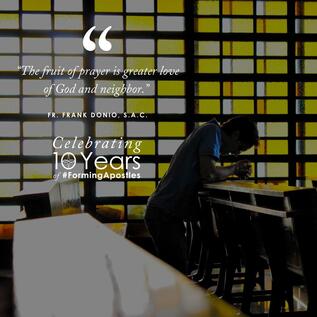 Prayer can be challenging. One of the beautiful things about Catholicism is the variety of ways in which we can pray. That variety can be daunting at times. Where does one start? The important thing to recall is that prayer is our dialogue with God. We are called not only to speak, but also to listen. Will we have a voice from above telling us what to do? Probably not. We need to still ourselves to listen for the “tiny whispering sound” (1 Kings 19:12). We adore and thank God in prayer. We petition God for our needs and offer contrition for the times when we have sinned. We worship Christin community, most especially at Mass, and in the solitude of our “inner room” (Matthew 6:6). In all these ways, we are in a privileged conversation with God. We need to remind ourselves that we cannot fool Christ. He knows us better than we know ourselves. He knows what is best for us and what we need to be the disciple we are called to be. Prayer offers us an opportunity to come to realize more fully the ways Christ gives us to live more deeply for him and less for ourselves. The fruit of prayer is greater love of God and neighbor. As the saints show us, people of authentic prayer show their holiness through acts of goodness, truth, justice, and charity toward their neighbor. Of course, we can start to make distinctions about who our neighbor is, but in the parable of the Good Samaritan, Christ clearly tells his listeners and us that everyone is our neighbor (Luke 10:15-37).We witness our life of prayer through our words and our deeds! May the Charity of Christ urge us on! In God, the Infinite Love, Fr. Frank
“Therefore, since we have been justified by faith, we have peace with God through our Lord Jesus Christ, through whom we have gained access [by faith] to this grace in which we stand, and we boast in hope of the glory of God. Not only that, but we even boast of our afflictions, knowing that affliction produces endurance, and endurance, proven character, and proven character, hope, and hope does not disappoint, because the love of God has been poured out into our hearts through the holy Spirit that has been given to us.”--Romans 5:1-5
Many of us are taught from a young age that Jesus loves us, stands with us, and listens to our prayers. This reality is easy to accept intellectually but hard to know in one’s heart. As one matures through adolescence and adulthood, troubles seem to build and anxieties can begin to overwhelm. Despite our faith and love in Christ, a deafening silence and perceived sense of loneliness can invade one’s spiritual life. This can occur in a myriad of situations, but I have noticed it is especially common when people experience some sort of transition in their life. By its very nature, dramatic change disrupts routines and occupies the mind with a million more questions than on more “typical” days. Being worried and focused on other aspects of life makes it harder to see and know Jesus in these day-to-day moments. In addition, world events like natural disasters or instances of social or political upheaval can push many members of the faithful into periods of doubt and questioning. The key to getting through these “gray” moments in our spiritual life is through perseverance in the face of doubt, questions, and anxiety. One must dive deep into the moments of grayness in order to come to a better realization of who Jesus is and what true love and faith looks like. Before I continue, however, I want to say that this perseverance is not a perfect problem solver. Instead, taking one step at a time in the spiritual life despite a gray cloud or pall that seems to be hovering over you can be the means to continuing your faith and deepening your relationship with Christ. It is not a quick fix that will make you feel better in a day or two. Rather, perseverance is a method of faith development that looks different for each person. The key to all of this is consistency. Many saints experienced periods of spiritual drought, doubting, and dark nights of the soul (a term coined by St. John of the Cross). Most famously, St. Mother Teresa of Calcutta experienced decades of “hunger for God,” and “the terrible feeling of being ‘unwanted’ by Him.” St. Teresa arguably saw some of the ugliest facets of human life and society, and any person who was ministering to the poorest of the poor would feel some form of burnout and depression. Many Christians today experience these same emotions in their own faith journeys, and instead of giving up and letting go, one must do the counter-intuitive action and cling to Christ more. Although I understand that this sounds cliché, bringing one’s raw questions, emotions, fears, and doubts to Jesus—whether at Mass, Adoration, or even in the car—can help one come to resolutions. Prayer is defined in the Catechism as “the raising of one's mind and heart to God,” and since our hearts are all unique, our prayers to Jesus in “grey” moments look different (CCC 2559). You must find a form of prayer that helps you draw as close to Christ as possible. This prayer can be Adoration with journaling, a Rosary with meditation, talking with friends or a spiritual mentor, or even venting to God aloud when you are home alone. The most crucial part of these moments is that you are praying and talking to God. Lastly, these hard times are normal in the spiritual life. Countless saints have experienced them, and thousands of Catholics are in the midst of them every day. When one enters into these dark nights, one must cling to Christ in the hope that comes from afflictions as St. Paul says in his Letter to the Romans. As St. John of the Cross also says, trust that “in the dark night of the soul, bright flows the river of God.”
The best thing about being a parent is finding joy in the moments that your child is laughing, playing, and having fun. It’s joyous and fulfilling; and there is no greater feeling. There are other times when parenting is hard--full of so many sacrifices and tough decisions that make it feel like the farthest thing from a perfect scenario. My toddler is two years old and pretty expressive about what he wants and needs. His favorite phrases right now are: “I want fruit snacks” and “New truck show.” Depending on the answer to his requests, he’s either overjoyed or devastated. He will curl into a ball with his head on the floor at my feet or just burst out into a shrieking scream of anger. I think for most parents, it’s hard to see your child struggle. While it’s important for him to learn lessons like “not-right-now,” teaching him and working through these times of struggle are not fun parts of the vocation. I’d like to think that God, our very compassionate, perfect Father, watches over us in our many struggles and is the kind of parent beside us in our tantrums, too. The weight of parenthood doesn’t affect our Father. Instead, he is the one who strengthens us, the stressed-out parents, when we ask for his help in prayer and let him in.
Jesus is the Son of the Father. When he taught his disciples to pray, he gave us the Our Father prayer. In each of these lines, we can find solace in praying to our Father in heaven. There is such beauty in the words from Christ that capture every essence of our Gospel. Our Father, Who art in heaven, Hallowed be Thy Name. Thy Kingdom come. Thy Will be done, on earth as it is in Heaven. Give us this day our daily bread. And forgive us our trespasses, as we forgive those who trespass against us. And lead us not into temptation, but deliver us from evil. Amen. Let’s go through the prayer and break it down a little more:
By the end of the Lord’s Prayer, I see a loving, forgiving, and omnipotent parent. I feel like God is supporting me and guiding me. He is inviting me to have faith in what he wants for me and my life. The Our Father also reminds me to be grateful each day, to forgive others, and to allow myself to be forgiven, most importantly in Confession. A parent’s life is sometimes consumed by their child or children. With God’s help, we can live out our vocations as parents by looking to his example of Fatherhood. God in His Wisdom created us to be His. He made us unique, with a capacity to love and with Free Will. He made us to be thinkers and creators. He loves us so much that he brought his Son into the world to die for our sins and then be able to live with him eternally. I can’t imagine a more perfect parent than that. It’s that time of year where students set off for college, some for the first time and some going far away from home. These students take on the challenge of continuing towards adulthood and the process of making their faith their own. This can be a difficult road filled with numerous temptations, stresses, and other challenges. As someone who attended Catholic school for most of my life, I found the transition to college difficult, especially when it came to my faith. I attended a large public university where few practiced Catholicism, and I felt very isolated. The people who I attended Mass with at the beginning of the year began to slowly drift away – going to other churches or becoming too busy with academic commitments. With my class schedule it was hard to make it to the Catholic Student Union events and join the camaraderie. While I adjusted well to college life, I felt alone in my faith. Everyone has different experiences when it comes to the transition into colleges. Whether you are entering college for the first time, a current student wanting to get more in tune with your faith, or even a parent or relative of a college student(s), I’ve compiled some tips about keeping up with your faith life that can be helpful: 1. Make friends who challenge you to be your best selfMake friends wherever you go on campus, but remain close friends with those who continually challenge you to be your best. Many of my closest friends at college weren’t Catholic, yet they held me to remain true to my faith and myself without peer pressure. Just as a spouse is to help his or her partner grow in faith, so too should your friends. 2. Get InvolvedWhether you join the Catholic Student Union or other groups on campus, make sure you are busy. Becoming involved lessens homesickness and other temptations. Enjoy your college experience! 3. Go to Mass every SundayMark it on your agenda. Make sticky notes. Do whatever you need to do so that you attend Mass each week. Experiencing Christ every week in the Eucharist renews us and gives us strength. Fortunately, as Catholics we usually have a variety of Mass times to attend, so take advantage of that! 4. Challenge yourself and set goalsRegularly make short-term and long-term goals, and then try to stick to them. These can be anything from attending adoration regularly, going to daily Mass, setting aside prayer or Bible-reading time, or even studying abroad, trying new foods, and accomplishing a certain academic achievement. 5. Find time every day to pray and appreciate the beauty around youDoing this helps strengthen your personal relationship with God. Plus, you gain a better appreciation for life and develop practices that will stay with you after college. It’s not easy, but it matters that you try. 6. Call your family and your close friends one or more times a weekThese people are important foundations in your life. Keep them updated on your life in college and be honest with them. Your family and friends are a support system when things aren’t easy. 7. Find a MentorYour mentor(s) can be an academic, club advisor, older student, or religious. These individuals in your life can help you navigate college, your future, and strengthen your faith. (Plus letters of recommendation and internship/job advice are certainly helpful!) 8. Talk to people at your local church and get involved in the Mass Become a part of your new parish community at college. Get to know others around you to have that “home away from home.” This will help you make good life-long friends. Plus, getting involved in the Mass helps you become ingrained in the community while deepening your faith. 9. Search for a church you feel most comfortable going toFeeling at home in your college parish is important. Find a church that makes you want to go to Mass. The nearest church may not be your favorite – so explore! My favorite parish in my college town was about 15 minutes away and felt just like my home parish. 10. Find people to go to church with you Having someone to go to church with incentivizes you to go to Mass. Plus, it’s always fun having a buddy. Keep each other accountable! Make it a group event and have brunch or dinner after Mass, too! *This post was originally published on September 8, 2014. “Stay with me, Lord, for I desire to love You very much, and always be in Your company. Stay with me, Lord, if You wish me to be faithful to You. Stay with me, Lord, for as poor as my soul is, I want it to be a place of consolation for You, a nest of love.” These are words taken from the prayer of St. Padre Pio of Pietrelcina after Holy Communion. Padre Pio is known for many supernatural things, including the ability to fly, the ability to bilocate, and having the stigmata of Christ. Those who have taken the time to look into the holy life of Padre Pio will acknowledge his piety, his love for the Holy Eucharist and the Blessed Mother, his great ability to heal people, and his devotion to the Sacrament of Confession. Born in 1887 in Pietrelcina, Italy, Padre Pio entered the novitiate with the Capuchin Franciscans in 1903. Only five years after his ordination, Padre Pio was called into military service with the Italian Army Medical Corps in 1915. Shortly after, the wounds of Christ, the Stigmata, appeared on Padre Pio’s body. The presence of these wounds drew great intrigue and criticism. In the attempts to discover an answer, “Countless experts and doctors looked at his wounds with no clear explanation.” The stigmata, as well as Padre Pio’s great holiness and renown as a confessor, drew pilgrims from all over to visit with him. It is said that Padre Pio was such a prolific confessor that the waiting time for confession with him could stretch for over a week, and he would spend over fifteen hours in the confessional on any given day. Padre Pio is not a holy man who should inspire our lives of faith because he could levitate, bilocate, or see people’s guardian angels. No, Padre Pio is venerated and beloved because of how much he loved the Lord. The Lord granted his servant these graces and gave him these charisms to witness more fully to Christ. It is easy for us to get discouraged because our lives of faith do not include these grand displays of God’s favor. We worry because the saints have such remarkable stories and attributes that we read about while our own lives are so ordinary. But if Padre Pio were still on this earth with us, it is most likely that he would draw your attention away from those miraculous actions and towards our Blessed Mother, the mercy of God in the confessional, and our Lord Jesus Christ in the Eucharist. When my Dad had a serious accident in December 2018, I immediately prayed for St. Padre Pio’s intercession for a miraculous healing. One of my best friends had told me how great Padre Pio’s healing power was, I’d acquired a relic of his, and my devotion was growing. Almost every day, I would pray Padre Pio’s prayer after receiving Holy Communion in the chapel of the hospital or in my Dad’s room. I was drawn to the beauty of the prayer, how it reads like a great ballad, building in intensity and truth. At the same time, the prayer is so simple at its heart: Stay with me, Jesus. Padre Pio knew of his own weakness, the weakness of the human condition, and simply asked our Lord to remain close to him. May this simple yet beautiful prayer be ours today. May, in every situation we find ourselves in, we turn to Jesus as Padre Pio did and with our whole heart implore him, “Stay with me, Lord.” Click here to learn more about St. Padre Pio.
“Peace be with you. As the Father sent me, even so I am sending you. Then He breathed on them and said: ‘Receive the Holy Spirit’.” John 20:21-22. The older I become, the more my eyes are opened to the lack of control I have over things of life, how easily I can become consumed by the priorities of the world, and how duped I can be by the devil. I realize more how important it is for me to be waiting in expectation for Jesus to direct and guard me. Do you remember that the first greeting Jesus gave to those he encountered after His resurrection was “peace be with you”? I hang onto those words because this peace is where I am to live. “Peace I leave with you, my peace I give you. I do not give to you as the world gives. Do not let your hearts be troubled and do not be afraid” (John 14:27). Over the past several weeks, I have been reflecting on the Resurrection during my prayer time. When some of the disciples came and saw the empty tomb, they returned home. Mary Magdalene stayed at the tomb, waiting. If you have a minute, spend some time reading John 20. My reflection over these past weeks has focused on Mary Magdalene. Why did she stay? Understanding more of Mary Magdalene’s story, I recognize how profoundly changed she was by her time spent with Jesus. He had, in a sense, loved her back to life! Her salvation was deeply personal and so life-changing that she was willing to seek Him at the tomb and remain there. She wanted to encounter the Risen Lord. All of this has led me to ponder my own spiritual life. Is my salvation that real, that personal? Am I so completely committed to walking in the will of God that I am always waiting to hear His direction for me? Or am I so distracted by the day-to-day that I have lost that readiness to seek His presence in my life? This introspection awakens my desire to be like Mary – who waited by the empty tomb – wanting to encounter the Lord again whenever He chooses to reveal Himself. I want my relationship with my Lord and Savior to be my paramount priority because my identity, purpose, and vocation are rooted in Him. As a Christian, I proclaim that I want heaven – and that comes with the steadfast choice of the way of the Cross of Jesus Christ. Matthew reminds us, “The road to perdition is wide and many choose it. But the road to eternal life is narrow and few find it” (Matthew 7:13). My ideas, my desires, and my decisions need to be aligned with God’s will. As a wife, mother, daughter, friend, colleague, and neighbor, I must be attuned to His voice, His promptings, His guidance, and His graces. Every thought I have, every little act I do, must be in total unity with my Savior – Who is pure, unconditional love. Yes, I want to be like Mary Magdalene waiting for my next encounter with Jesus so I can go deeper and further into His Sacred Heart and become more loving to the people in my life. The question on a very practical level is: how do I achieve this? How do I stay in this disposition of grace, waiting on the Lord? I am bombarded with uncertainty, chaos, division and fear. Satan is prowling to destroy souls. My mind and spirit are attacked from all directions in this troubling world. But one thing remains the same: God is on the throne of heaven, His love for each of us is never-ending, and His promise to be with us is constant. We are told this over and over throughout the Bible. I believe this and I pray for eyes to see the path to walk through the landmines of the day. I ask Him to renew my desire to live and act in joy each day. I recommit daily to looking for goodness in those around me, to refrain from grumbling or criticizing or holding others in judgment. I drink from the well of the Scriptures, particularly the Psalms and the Acts of the Apostles, to keep my focus on His ways. I receive food to strengthen me from the Eucharistic table, the Rosary, the Divine Mercy chaplet, and singing songs of praise. When God quickens my spirit, I share a compliment, a smile, a hug, an encouraging word, a listening ear, or a prayer. Opportunities present themselves continually and my choices are what keep me in the heart of Jesus! This is what makes my salvation personal and allows me to live in joy and hope when the world screams the opposite. Little acts, one choice at a time, keep me ready for His direction. By myself, I am small and weak. Listening to Christian music, hymns or chants, working through the beads of my Rosary, saying numerous prayers, attending Mass frequently, receiving absolution for my many failings in Reconciliation, and doing an examen before bedtime all help me remain in His presence and live in His will. From these, I can smile more easily, speak encouragingly, think positively and share love unreservedly. My salvation on that Cross in Calvary rejoices in the empty tomb and I stand waiting for my risen Savior to protect me and direct me every step of my journey. Lord help me to be bold, to proclaim your truth and to love always, no matter the circumstances. Give me ears to hear Your direction and feet to follow in Your footsteps so that Your love will flow out of me to everyone I meet. And may all our souls be a wildfire of LOVE that burns into our eternal home You have prepared for us in glory! When you hear the word “vocation” what comes to mind?
In my last year of college, vocation seemed like a puzzle to be solved. I put a lot of pressure on myself to figure out “what should I do with my life.” I met with a spiritual director and weighed several options, agonizing over how I would know which was the right choice. Although my spiritual director and many other people in my life tried to tell me that I didn’t have to figure out the entirety of my life just yet, I wasn’t listening. I had a very narrow view of vocation as something to be discerned once and only once. I thought, if you’ve done it right, you stick with your choice for your whole life. I imagined that God had my life mapped out for me and there was a very definite direction I should take; I just needed to figure out which it was. Now, 11 years later, I realize just how much God’s grace has been at work in me in so many ways—especially in broadening my understanding of vocation. I’ve come to really appreciate that discerning one’s vocation is not like completing a task at which we can excel or fail. It’s not a question with a single right answer. In fact, God’s plan for us is none other than to be holy, and to do so in ways specific to us, “to reflect and embody, at a specific moment in history, a certain aspect of the Gospel” (Gaudete et Exsultate, 19). The Second Vatican Council’s Dogmatic Constitution on the Church speaks of this universal and personal call to holiness by saying that “all the faithful, whatever their condition or state, are called by the Lord – each in his or her own way – to that perfect holiness by which the Father himself is perfect” (Lumen Gentium, 11). Each and every one of us has this fundamental vocation, the one that underlies every other particular way in which God calls us to holiness. Holiness isn’t lived out in a single grand way possible for only a select few; “We are all called to be holy by living our lives with love and by bearing witness in everything we do, wherever we find ourselves” (Gaudete et Exsultate, 14). In Gaudete et Exsultate, Pope Francis issues a powerful summons: “You too need to see the entirety of your life as a mission” (GE, 23). With this broader view of vocation, I can more readily recognize the multitude of ways in which God has drawn me to himself throughout the course of my life. I can discern how I am being called to holiness in this moment and reflect on how my response in the here and now is part of my greater life’s mission. Now I understand vocation as more than a single call. It is, rather, living our lives in a constant awareness of and responsiveness to the promptings of the Lord, who draws us to himself. Vocation is not inward looking; it draws us outward to God and neighbor. This redirected gaze allows us to recognize and receive with gratitude the gifts we are given so that we can more freely and truly make a gift of ourselves. Such self-emptying love is what it means to be Christ-like, to be holy. It forces us to reframe our questions. Instead of asking, “What do I want to be?” or “What do I want to do with my life?” (as I kept asking myself in college), we can prayerfully discern “How is God calling me to make a gift of myself?” This certainly applies to my state in life, whether I am called to give of myself in marriage or religious life. But I also respond to this call to self-gift by carrying out my work with integrity and skill in the service of my brothers and sisters, by patiently teaching my little ones how to follow Jesus, by refusing to gossip, and by saying a kind word to the person I encounter on the street (to list a few examples from Gaudete et Exsultate 14- 16). My life’s journey has taken a lot more turns than I could have anticipated those many years ago. Yet the Lord has made use of each step, big and small, to draw me ever closer to himself. Click here for more resources on Vocational Discernment. Social media has been gaining momentum in the Catholic world since the mid-2010s; however, since the COVID-19 pandemic began, digital evangelization and virtual faith-sharing have become even more important and prevalent. Because in-person liturgies, retreats, and daily interactions were not possible, Church organizations across the U.S. began to increase their digital footprint. Although the Catholic Apostolate Center has used technology and social media as tools for evangelization since its inception in 2011, the COVID-19 pandemic also led the Center to a greater focus on digital evangelization and online formation tools. As an intern with the Catholic Apostolate Center, my time has been punctuated by helping people encounter the Church and faith formation more positively. Specifically, expanding the Center’s courses on Catholic Faith Technologies’ e-learning platform and building an app for the Immaculate Conception Province of the Pallottine Fathers and Brothers has allowed me to create new ways for people to encounter Jesus Christ and learn more about Him. Pope Francis has followed the footsteps of his predecessors by encouraging the Church to continue evangelization over the internet. Our Holy Father has stressed the importance of using the technological means available to us today in order to proclaim the Gospel “to all the nations.” This evangelization can come in many ways and forms, and the Catholic Apostolate Center has embraced this understanding since its foundation. This summer, I have been working on adapting the Center’s “Apostles on Mission” in-person course to be an asynchronous course online with Catholic Faith Technologies’ e-learning platform. As a secondary education major, I was able to hone my skills as an educator by looking at the lesson outlines and plans and advising a break, an activity, or a different method of conveying the content to increase engagement. This project has also helped me look at what intellectual faith formation means and why it is so pertinent to the spiritual life. Formation in the Church calls us to learn more about Jesus, the Church, our Faith, and our own strengths and weaknesses. However, with the advent of the internet, we must cast the net over the right side of the boat, as Jesus calls us, to reach more people and continue to spread the Gospel message. Expanding digital resources for faith formation allows all the faithful to grow closer to our Lord. Digital evangelization can also allow for a more profound personal encounter with Jesus Christ. As seen throughout the pandemic, prayer resources can help people feel connected to the greater Church community. People want to experience various types of prayer to delve deeper into the spiritual life. The Catholic Apostolate Center has been working tirelessly this summer to create a prayer app for the Immaculate Conception Province of the Pallottine Fathers and Brothers. This app—entitled “Revive & Rekindle”—will assist the Pallottine community and the general faithful in growing closer to Christ through the spirituality of St. Vincent Pallotti. This project has allowed me to make two important observations about the Catholic faith. First, we must promote various forms of prayer and devotion to help the faithful find the styles of prayer that best suit them. Second, prayer and devotion must be disseminated and promoted in different media to spread the Gospel message to as many people as possible. The “Revive & Rekindle” app will allow people to grow closer to Jesus through reflections and prayers inspired by St. Vincent Pallotti, who urges us all to become Apostles for the Lord. As a strong proponent of the New Evangelization, Pope Francis encourages us to enter the digital landscape to encounter people and bring them closer to Christ. The Church can only do this through intentional formation and by promoting an encounter with Christ online. As an intern at the Catholic Apostolate Center, I have grown professionally, personally, and, most importantly, spiritually. Working with the Center, I have concretely realized what Pope Francis means when he urges young people not to “wait until tomorrow to contribute your energy, your audacity and your creativity to changing our world. Your youth is not an “in-between time” (Christus Vivit). A vast majority of people in the United States have social media, and since many Catholics are among this number, we have to preach the Gospel on all channels and encounter others and Jesus Himself through means of digital formation and evangelization. We must reach out to all corners of our world and society to be Apostles on mission for Jesus.
Sometimes sanctity feels like an impossible goal. I can admire and love the holiness of the saints but, like the achievement of the professional athlete or Nobel prize winner, I know that it is not something readily within my reach. It seems to be a rare gift or a special privilege, so it is easy to console myself with the seemingly humble admission of how far I fall short of such a lofty ideal. Being a saint is a gift and a privilege, so we would be right to attribute such holiness to God’s grace! But drawing closer to the saints themselves reveals something more about holiness and the quiet daily struggle of love. Saint John Eudes, whose Memorial we celebrate today, is remembered chiefly for his devotion to the hearts of Jesus and Mary. But this devotion wasn’t an abstract concept or merely a personal predilection. It was a concrete way of expressing God’s transformation and transfiguration of humanity through the event of the Incarnation. And in the image of the heart, the fullness of human sanctity is revealed. Saint John Eudes, like so many other saints, wrote many wonderful spiritual works. What stands out in his thought, however, is the intertwining of a meditation upon the holiness of Christ’s life and the necessary holiness of life to which all Christians are called. If I feel intimidated by the holiness of the saints, then I feel infinitely more intimidated by the challenge of truly imitating Jesus’ life! And yet that is exactly what Saint John Eudes encourages us to do. Union with Christ through faith and the sacraments is not a nice sentiment or empty metaphor, but rather a concrete connection to the reality of his Incarnate life. Taking inspiration from Saint Paul’s affirmation that “in my flesh I am filling up what is lacking in the afflictions of Christ on behalf of his body, which is the Church,” (Col 1:24), Eudes argues that every Christian is joined to Christ’s life in a similar way through grace: “Thus, when a Christian prays, he continues and accomplishes the prayers of Jesus Christ. When he works, he continues and accomplishes Christ’s laborious life. When his relations with his neighbor are inspired by charity, he continues and accomplishes Christ’s public life. When he takes his meals or his rest in a Christian fashion, he continues and accomplishes the subjection to these necessities that Christ willed to have in Himself.” (The Life and the Kingdom of Jesus in Christian Souls, pg. 6) Like Saint Paul, Saint John doesn’t mean to imply any deficiency in Christ’s earthly life or the efficacy of his Passion, Death, and Resurrection. Rather, he reminds us that Jesus’ true humanity sanctifies ours in a radical and comprehensive way. As the Catechism of the Catholic Church puts it, “Christ enables us to live in him all that he himself lived, and he lives it in us” (§521). Does this make holiness seem any more achievable? Saint John Eudes, while still recognizing the difficulty, saw it as a means of drawing the ordinary in our lives (prayer, work, meals) into the realm of Christ’s true human life of ordinary holiness. In his further meditations and exercises, Eudes encourages all Christians to sanctify every action of each day, each week, each month, and each year. Every moment of our lives is changed by Christ’s life, because Christ is truly human and truly divine, the “Word made flesh” in all the specificity of what it means to “dwell among us” (John 1:14). Every moment of our lives is potentially transfigured because God has lived our life even in its quiet struggles and hidden joys. This is sometimes hard for me to remember, when life seems too complicated, too busy, or too ordinary. But drawing close to the saints reminds me of their humanity and, through them, the humanity of our Lord Jesus Christ. As Saint John Eudes teaches us, this shouldn’t be a way of excusing our sinfulness and limitations as merely human. Instead, it should be a way of seeing even the least things in ourselves as a continuation of Christ’s transfiguring love. When the COVID-19 pandemic began and so much seemed outside of my control, I turned to prayer as a source of comfort, nourishment, and stability. Favorite Catholic podcasts, powerful homilies, Gospel-inspired music, Scripture reading, and devotions like the Rosary kept me grounded in a higher reality than the confusing, dark, and humbling one I faced. Perhaps I felt the need to overcompensate in a time when I couldn’t physically receive the Eucharist. The lack of physical Communion meant I searched for spiritual, mental, and emotional communion with the Lord in other ways I found fruitful. In this way, times of trial can bear much fruit—suffering sharpens our eyes to the eternal and true. It is sobering. Surrendered to God, suffering can be the most direct path of conversion and redemption. As the pandemic continued and I was able to adjust to my new “normal,” my sense of emergency slowly began to fade. I found ways to be comfortable and to continue meeting needs like friendship, worship, and rest. No, everything was not as it had been. Life was still a shadow of its former glory. And yet, I had found ways to cope. As this trajectory continues with the reopening of society in many ways, I have begrudgingly found that my deep prayer life has slowly faded. Becoming more of a checklist than a time of renewal, my prayer time is filled with distraction and noise. I’ve come to realize that I would rather fill my time with the noise—albeit good noise—of a Catholic podcast or homily instead of turning everything off and filling my time with God Himself. I’m more comfortable hearing others talk about God and their spiritual insights than talking to God. I’m also more comfortable talking AT God than WITH Him. I have a lot to say, but am not spending time listening or receiving. Finally, once I do settle down to pray, my tasks, chores, and rambling thoughts bombard me. My prayer time is filled with noise and distraction. Why is it easier for me to scroll through a newsfeed of beautiful images and consumer goods than to thumb through my Rosary meditatively? Why is it easier to respond at all moments to the latest texts in a never-ending group thread than it is to respond at all moments to the promptings of the Holy Spirit? Why is my heart more easily captured by the words of the media than by the Word of God? For perhaps the millionth time, I must face again a thorn in my side that prevents me from greater holiness: noise. “Noise, the grand dynamism, the audible expression of all that is exultant, ruthless, and virile—Noise which alone defends us from silly qualms, despairing scruples, and impossible desires,” says the demon Screwtape in C.S. Lewis’ classic, The Screwtape Letters. He continues, “We will make the whole universe a noise in the end. We have already made great strides in this direction as regards the Earth. The melodies and silences of Heaven will be shouted down in the end.” Lately in my life, it seems like Screwtape and his friends are succeeding. I’m having trouble hearing the melodies of Heaven amidst all the noise. And can’t we all admit to knowing this deep down—that much of our lives is an endless stream of noise and distraction threatening to drown out the still small voice inside? I reflect on these things once again while reading a powerful book and meeting virtually with other women--This Present Paradise: A Spiritual Journey with St. Elizabeth of the Trinity. Elizabeth, through the author Claire Dwyer, is shaking me from my complacency and passing through the distractions to help resurrect my heart. This young French Carmelite nun who lived over a hundred years ago mastered the interior life of prayer and encourages all to do the same—regardless of their vocation in life. I know I am called to more than what I’m filling myself up with; an hour of scrolling through items on sale or watching a home renovation show will never compare to fifteen minutes of virtual Adoration or a few decades of the Rosary. Any time consecrated to God is not returned unsanctified. In times of greater stability, comfort, or complacency, I’m also reminded of the Scripture passage about the wise virgins at the gate. We are called to fill our lanterns with oil as we await the Bridegroom so that we will be prepped and ready for His return. I have personally found that my preference for news feeds, shows, or internet browsing fills my lantern with something akin to water rather than oil, and so I am using this season of Ordinary Time to recommit to a quieter, more fruitful prayer life. Below are a few things I have found helpful for overcoming spiritual distraction and ensuring daily prayer:
As the world continues to reopen in ways that give us hope, I invite you to reflect on your prayer life throughout the pandemic months and set goals for yourself during this season of Ordinary Time. In the end, may we find that the melodies and silences of Heaven triumph over the noise of the world.
As I write this, my laptop is balanced precariously on my knees because there is no longer space on my lap. My baby girl presses into my belly button with each hiccup, and I can’t help but think about her arrival. In the next three weeks, I will feel her hiccups against me from the outside. I will know her hair color and her features and I will breathe in her perfect newborn scent. Until then, I cherish the last days of my two-year-old being the baby, of my family being one of six instead of seven, and the time I have to prepare for her to enter the world.
First time mothers and mothers of many can easily relay their baby preparedness to-do lists: rinse the onesies, install the carseat, visit the doctor again. Physically and mentally, we work to be ready to welcome the sweet new life we created. I’m embarrassed to admit that I did not make plans around my spiritual readiness for a newborn until the birth of my fourth child. In all of my business preparing my mind and body for labor and delivery, God’s role in this life-event has been a mere afterthought. Confessing this to other mothers and mothers-to-be has revealed that I am not alone in this oversight. Being consumed by the physicality of what is happening to our bodies can edge out any focus on what is happening to our spirit. This time, I’m changing that. Through Seeking-Truth In Jesus Calling: Enjoying Peace in His Presence, Sarah Young writes, “When you seek My face, put aside thoughts of everything else. I am above all, and in all; your communion with Me transcends both time and circumstances. Be prepared to be blessed bountifully by My Presence, for I am a God of unlimited abundance.” The process of labor, delivery, and early mothering is one of humility. I deeply desire a window into the future so I can know and prepare for the date and time this baby will come, how delivery will go, and what the outcome will be. Of course, these are things I cannot know. By seeking Truth in His face, in the Word, and in the sacraments, I am invited to rest in the peace of what I do know: my baby and I are seen and known by the God of abundance. He alone knows what is to come, and His plan for me is good. Through Worship This truth leaves me in awe of our God, and I cannot help but to praise Him. My favorite form of worship is music, and I want to bring that into the delivery room. With each contraction, I can lose myself to the words celebrating His presence in the pain. It reminds me of His strength when I feel that I have come to the end of my own. Words of praise will be some of the first my baby hears. My labor playlist is available for you here. Through Prayer One of the many gifts of prayer is its communal nature. This has been a beautiful way to invite those we love into the process of preparing for the birth of our baby, and even into the delivery room. This pregnancy, we have invited our loved ones to pray a novena leading up to the baby’s due date. Our child’s godparents alongside many of the friends who witnessed our wedding, and vowed to help uphold us in our vocation to family life, will join us in the novena to Saint Mary Magdalene, praying for the safe delivery of our baby. (It starts today-- join us!) Other favorite prayers leading up to labor and delivery include: -St. Gerard Majella Novena for Expectant Mothers -Novena to Mary, Mother of God -Prayer for the Birth of a Child We invite our friends to pray for us, but we also invite them to offer their intentions so that we might pray for them. As Catholics, many of us are familiar with the phrase "offer it up." This means that we can enter into the redemptive suffering of Christ when we "offer up" our own suffering, work, or joy. The Catechism says, “The cross is the unique sacrifice of Christ, the ‘one mediator between God and men’ [1 Timothy 2:5]. But because in his incarnate divine person he has in some way united himself to every man, ‘the possibility of being made partners, in a way known to God, in the paschal mystery’ is offered to all men (618).” It is my hope to offer up the pain of childbirth for the cares and concerns of the people we love the most so we ask: How can I "offer up" the end of this pregnancy and my labor for you? Preparing my heart to walk alongside Jesus through the last days of pregnancy, childbirth, and recovery is the most important preparation I can make. Together with my Heavenly Father, the onesies will be cleaned and the hospital bag packed. In His presence, this child will come into the world with praise. My life and hers, our being, our all, are in Him and with Him, and for Him. And so, Amen. For more resources on Marriage and Family, please click here.
Summertime is here and with the change in schedules and weather, people make plans for vacations or simply enjoy a more relaxed routine. Our family vacations over the years were full of outdoor adventures in the mountains or at the beach visiting our extended families. Wherever you choose to vacation – even if it’s a staycation in your hometown – can be a beautiful time full of spiritual refreshment. Years ago, when I was in the trenches with six kids aged 18 to newborn, I read a book called Sanity in the Summertime: The Complete Summer Survival Handbook for Moms by Claudia Arp and Linda Dillow. I adopted many of their great ideas and incorporated some of my own to bring more of the richness of our Catholic heritage into our family life. This time of refreshment is a wonderful time to renew your relationship with the Lord and to help those in your family to cultivate their individual faith life. I have compiled a list of the things that we incorporated into our vacation and summertime routines over the years. This list is just a beginning and the potential for summertime recreation is limitless based on your family’s personalities and interests.
The beauty of vacation time or a more relaxed summer schedule involves soaking up the blessings of the time and intentionally bringing Jesus into the season to enrich your faith life and discover the creative ways God is moving in our lives. He has given us everything. When we can slow down and change the pace and the environment for a little bit, we can see more clearly His love and provision for us. This clearer vision of our communion with God enables us to deepen our relationship with Him and to answer His call. Let this song be our mission in our vacationing: “Day by day, Day by day, O dear Lord Three things I pray: To see Thee more clearly, Love Thee more dearly, Follow Thee more nearly- Day by day” Lyrics by Robin Lamont There are few religious images that hold more significance for me than that of the Sacred Heart of Jesus. My grandmother, a pillar of faith in our Mexican-American family, kept a framed copy of the image in her bedroom, adorned with numerous prayer cards, mementos, and old palm branches. For a young child walking by the door, that image seemed both mysterious and comforting. What was it actually depicting and why should it be a focus of such devotion? Who was this Jesus who stared out at me, gesturing to the flaming heart in his chest, poised as if to offer it out through the frame of the picture? Only years later would the full meaning of the image become apparent, as I learned more about the history of Christianity and the fundamental meaning of the Incarnation. Devotion to the Sacred Heart of Jesus, which developed particularly in 17th century France from earlier medieval devotions to Christ, is about much more than the image itself. Given particular shape by the writings and experiences of figures such as St. John Eudes and St. Margaret Mary Alacoque, the devotion is a way of contemplating more deeply the mystery of God’s love for humanity expressed in the true human existence of the Son of God as the Incarnate Word. Ultimately, the image and devotion remind us that the God we confess as Christians is not a powerful yet distant God. Rather, the God who so loved the world (Jn 3:16) loved us in such a way that he truly entered into human life, becoming a human being not merely in appearance but complete with body and soul, mind and heart. In a certain way, the devotion trains our minds to resist passing over the Incarnation as simply a well-worn article of doctrine, affirmed as a matter of course but rarely considered more closely for its radical implications. Christianity is not ultimately a belief in formulas but rather an encounter with God in faith expressed, preserved, and remembered authentically through such fundamental doctrines as the Incarnation (cf. Catechism of the Catholic Church §170). As Pope Benedict XVI wrote so beautifully in his first encyclical, Deus Caritas Est, “being Christian is not the result of an ethical choice or a lofty idea, but the encounter with an event, a person, which gives life a new horizon and a decisive direction” (Deus Caritas Est, §1). The devotion to the Sacred Heart, and the strikingly concrete image of a human heart, presents this encounter in high relief. Jesus Christ is much more than a moral teacher or religious sage. He is much more than a simple mode of communication between God and human beings, or a courier of divine knowledge and commandments. He is, instead, the Good Shepherd who has come to us, whose heart is moved with pity. He is the Bridegroom who has loved us with a human heart and given himself completely for us. He is the God who is Love (1 Jn 4:8), who unites to himself a human heart in the Incarnation and transfigures it with the fire of divine love as the heart of the Incarnate God. This good (and truly astounding) news is depicted in the gaze and kindled heart, the crown of thorns and the cross, of the image of Jesus that hung in my grandmother’s bedroom. The image and devotion, so widespread now as to feel fundamentally traditional, invites all Christians to return in awe to an encounter with this God who has loved us and humbled himself so much for our sake, “becoming obedient to death, even death on a cross” (Phil 2:8). On this Solemnity of the Most Sacred Heart of Jesus, may we turn to Jesus, who is turned to us and always has his eyes fixed lovingly upon us (cf. St. John Eudes, Letter 9), so that we may “know the love of Christ which surpasses knowledge… [and] be filled with all the fullness of God” (Eph 3:19). |
Details
Archives
July 2024
Categories
All
|
About |
Media |
© COPYRIGHT 2024 | ALL RIGHTS RESERVED


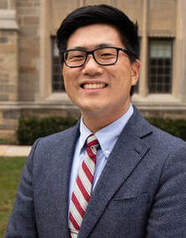
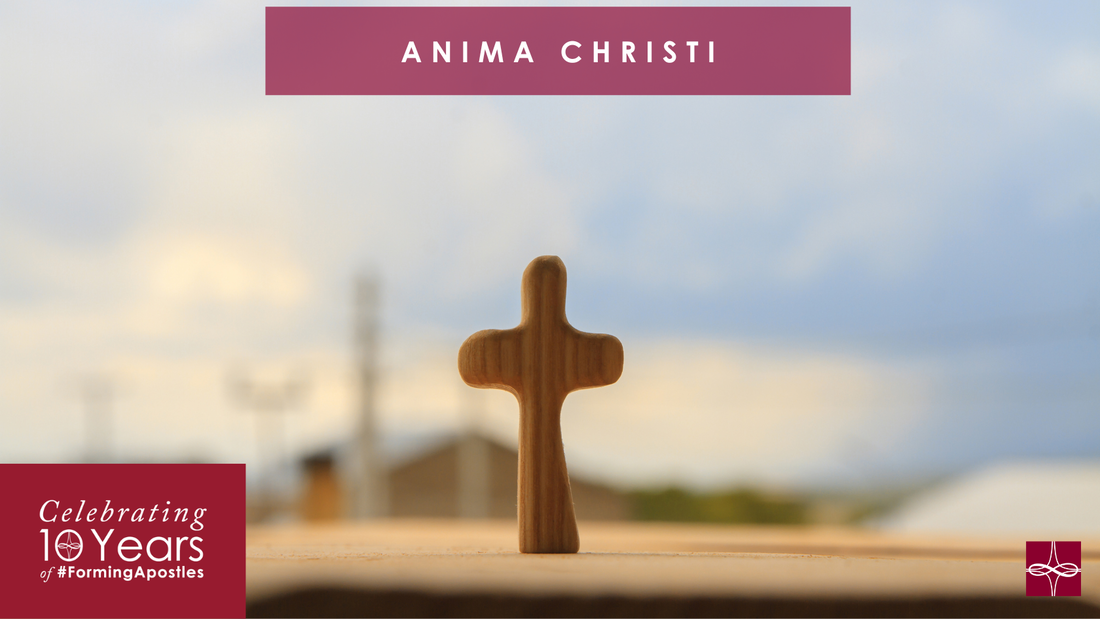
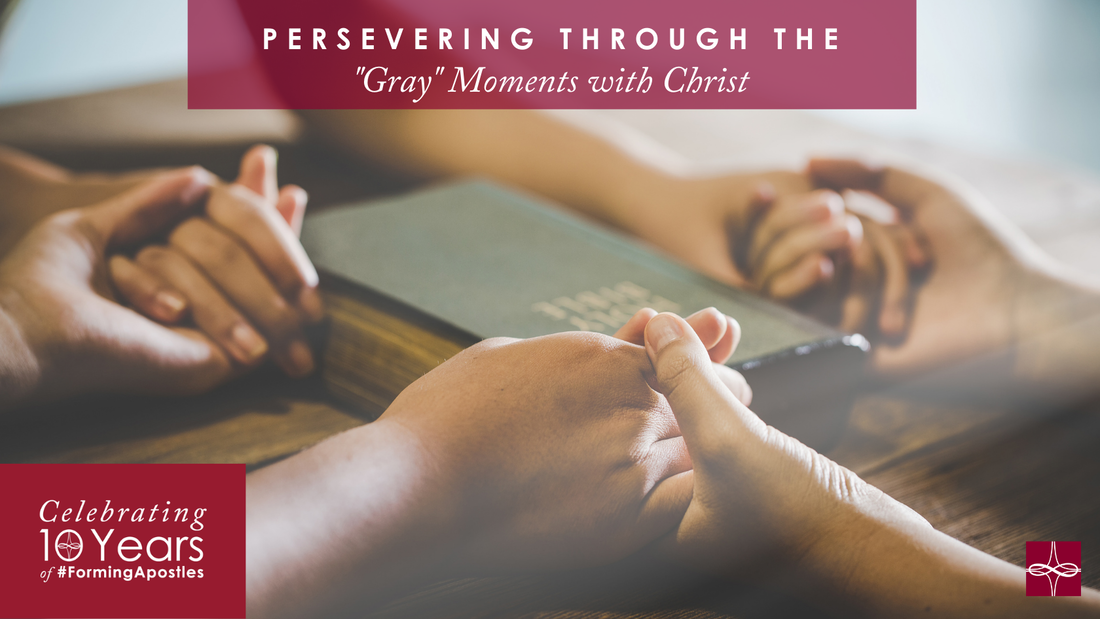





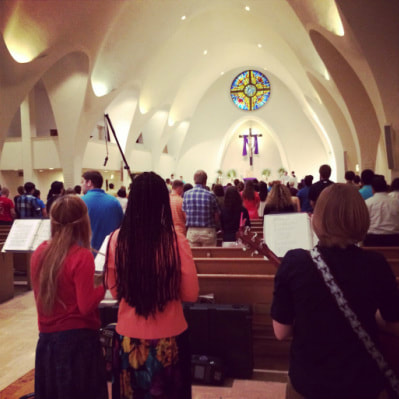



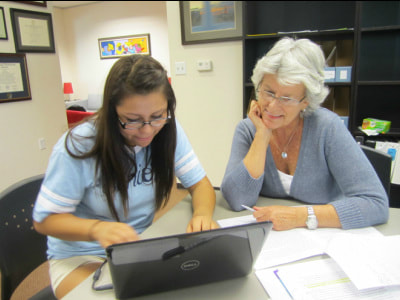
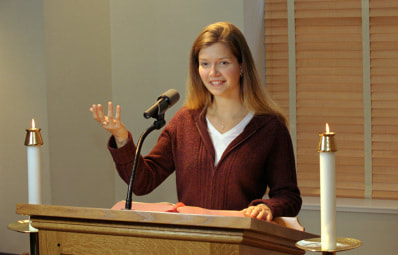
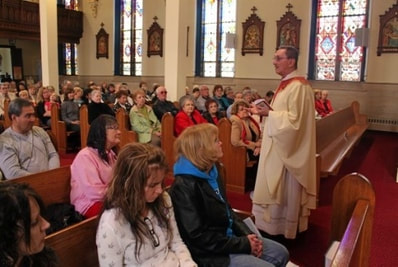
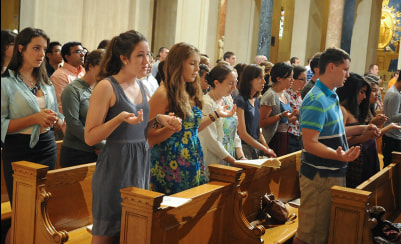

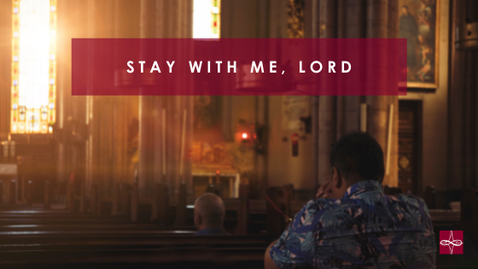



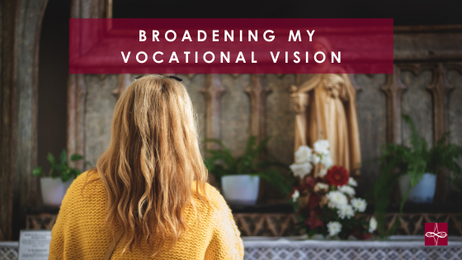



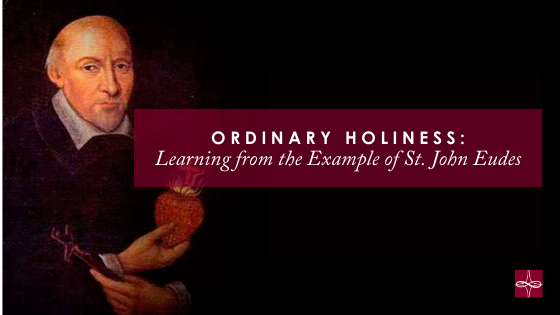
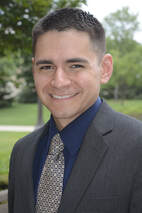
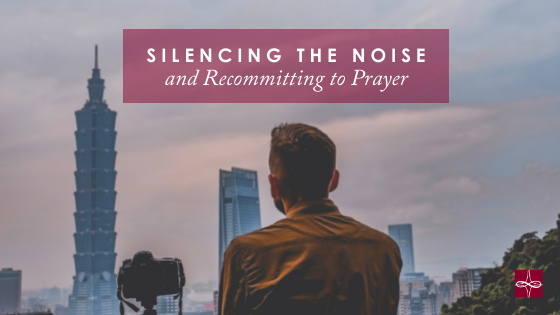





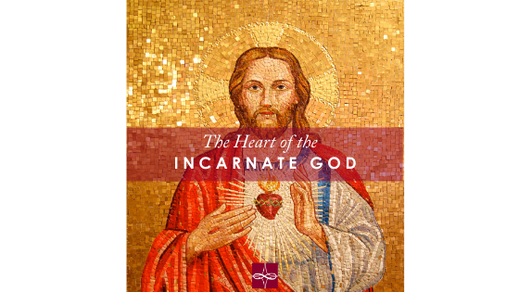
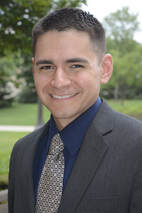
 RSS Feed
RSS Feed